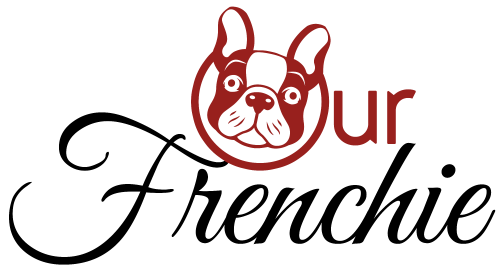About
How to Switch Your French Bulldog’s Diet Safely
Page Contents
Switching your French Bulldog’s diet can be a daunting task, but it’s essential for their health and well-being. Whether you’re transitioning to a new brand, addressing allergies, or moving to a raw food diet, doing it safely is crucial to avoid digestive issues. This guide will walk you through the process of changing your Frenchie’s diet gradually and effectively, ensuring a smooth transition. From understanding your dog’s nutritional needs to monitoring their response to new foods, we provide expert tips and insights to make the switch as seamless as possible.
Understanding Your French Bulldog’s Needs
Every French Bulldog is unique,and understanding their specific dietary needs is crucial for their overall health and well-being. These adorable companions are known for their playful nature and distinctive appearance, but they also have some unique nutritional requirements. **French Bulldogs have a tendency to develop food allergies and sensitivities**, so it’s meaningful to identify ingredients that may trigger adverse reactions. Look for signs such as itching, gastrointestinal issues, or changes in behavior, which could indicate an allergy or intolerance.
**Nutrient balance is key** for maintaining your French Bulldog’s energy levels and supporting their muscular build. Ensure their diet includes a mix of high-quality proteins, healthy fats, and carbohydrates. Frenchies are prone to obesity, so portion control and calorie management are essential. **Consult with a veterinarian** to tailor a diet plan that meets your dog’s specific needs, considering factors like age, weight, activity level, and any existing health conditions.
- **Proteins**: Opt for lean meats like chicken, turkey, or fish to support muscle maintenance.
- **fats**: Include sources like fish oil or flaxseed to promote a healthy coat and skin.
- **Carbohydrates**: Choose easily digestible options like sweet potatoes or brown rice.
Understanding these dietary components will help you make informed decisions when transitioning your French Bulldog to a new diet, ensuring they remain healthy and happy.
Choosing the Right New Diet Plan
When selecting a new diet plan for your French Bulldog, it’s essential to consider their unique nutritional needs and any specific health concerns they may have. Begin by consulting with your veterinarian to ensure that the new diet is nutritionally balanced and suitable for your dog’s age, weight, and activity level. **Look for high-quality dog foods** that list real meat as the first ingredient and avoid those with excessive fillers or artificial additives.
Consider whether a grain-free diet or one with specific protein sources might be beneficial, especially if your Frenchie has allergies or sensitivities. **Options to explore include**:
- raw or homemade diets – These can be tailored to your dog’s specific needs but require careful planning to ensure they are nutritionally complete.
- Commercially prepared wet or dry foods – Ensure they meet the standards set by the Association of American Feed Control Officials (AAFCO).
- Limited ingredient diets – Ideal for dogs with food sensitivities,containing fewer components to help identify allergens.
Once you’ve narrowed down your choices,introduce the new diet gradually over 7-10 days,mixing increasing amounts of the new food with the old to minimize digestive upset. Monitor your French Bulldog closely for any signs of discomfort or allergies, and adjust as needed to ensure a smooth transition.
Gradual Transition Techniques Explained
Transitioning your French Bulldog to a new diet requires a delicate balance of patience and precision to ensure their digestive system adjusts smoothly. Begin by mixing a small amount of the new food with their current diet. A common technique is the 10% rule: introduce 10% of the new food while reducing the old food by the same percentage. Over the course of 7-10 days, gradually increase the proportion of the new diet while decreasing the old, allowing your dog’s digestive system to acclimate without stress.
During this period, closely monitor your french Bulldog for any signs of digestive upset, such as loose stools or a decrease in appetite. if any adverse reactions occur, slow down the transition process, maintaining the current ratio for a few more days before proceeding. **Consistency is key**, so ensure that all meals are prepared with the same proportions to avoid confusing your pet’s digestive system.
- **observe your dog’s behavior and energy levels** – these are good indicators of how well they are adapting to the new diet.
- **Maintain hydration** – ensure your French Bulldog has access to fresh water at all times, as dietary changes can sometimes affect hydration levels.
- **Consult your veterinarian** – if you encounter persistent issues or have specific dietary concerns, professional guidance can provide tailored advice for your pet’s needs.
Monitoring Health During the Switch
As you transition your French Bulldog to a new diet, keeping a close eye on their health is crucial. Start by observing their energy levels and behavior, as these can be early indicators of how well they are adjusting. A sudden drop in energy or changes in behavior might suggest that the new diet isn’t agreeing with them. It’s also important to monitor their weight; a gradual increase or decrease can be normal, but significant changes should be discussed with your veterinarian.
Pay attention to their digestive health. Look for signs such as:
- **Consistent stool quality**: Ensure that your French bulldog’s stools remain firm and well-formed. Diarrhea or constipation can be signs of dietary intolerance.
- **Appetite changes**: A sudden lack of interest in food or excessive hunger might indicate that the new diet isn’t meeting their nutritional needs.
- **Skin and coat condition**: A healthy coat is typically shiny and smooth. if you notice excessive shedding,dullness,or skin irritations,it might be worth revisiting their diet.
Regular check-ins with your veterinarian can provide additional insights and ensure that your French Bulldog is thriving on their new diet. Your vet can perform necessary tests or recommend supplements if needed, ensuring a balanced and healthy transition. Remember, the goal is to enhance your pet’s well-being, so remain observant and proactive during this period.
Common Dietary Allergies to Watch for
When transitioning your French Bulldog to a new diet, it’s essential to be aware of potential dietary allergies that could affect their health. French Bulldogs are known to be prone to certain food allergies, which can manifest as skin irritations, digestive issues, or even respiratory problems.
**Common allergens** include:
- Beef: While a popular protein source, beef is a common allergen in many dogs.
- Dairy: Many French Bulldogs are lactose intolerant, leading to digestive upset.
- Chicken: Another frequent protein allergen, chicken can cause skin reactions and gastrointestinal discomfort.
- Grains: Ingredients like wheat, corn, and soy are often culprits behind allergies and sensitivities.
- Eggs: Some dogs may react adversely to egg proteins, resulting in itchy skin or ear infections.
To ensure a smooth dietary transition, monitor your French Bulldog for any signs of allergic reactions, such as excessive scratching, redness, or gastrointestinal distress.If you suspect an allergy, consult your veterinarian to discuss an elimination diet or alternative food options that can provide balanced nutrition without triggering allergic responses.
Incorporating Supplements Safely
when enhancing your French Bulldog’s diet with supplements, it’s crucial to prioritize safety and efficacy. Begin by consulting with your veterinarian to determine which supplements are necessary and beneficial for your pet’s specific needs. **Omega-3 fatty acids**, such as, can support skin health and reduce inflammation, while **glucosamine** and **chondroitin** are frequently enough recommended for joint support. Always choose high-quality supplements from reputable brands to ensure your dog receives the best possible ingredients.
Introduce any new supplement gradually to monitor your dog’s response. Start with a smaller dose than recommended and observe for any adverse reactions such as gastrointestinal upset or allergic symptoms. Gradually increase to the full dose over several days if no issues arise. This cautious approach helps your dog adjust and allows you to detect any potential problems early.
- **Read labels carefully**: Ensure the supplement is appropriate for dogs and check for any added fillers or artificial additives.
- **Monitor for interactions**: Be aware of potential interactions with existing medications or other supplements your dog may be taking.
- **Adjust as needed**: Regularly assess your dog’s health and consult with your vet to adjust supplement use as necessary.
Incorporating supplements into your French Bulldog’s diet can offer numerous health benefits, but it’s essential to do so responsibly. By taking these steps, you can support your pet’s well-being while minimizing risks.
Consulting with Your Veterinarian
Before embarking on any dietary changes for your French Bulldog,it is indeed crucial to engage your veterinarian in the process. **Veterinarians possess the expertise** to assess the specific nutritional needs of your dog, taking into account factors such as age, weight, health conditions, and activity level.A professional consultation ensures that the new diet will meet all the essential dietary requirements and prevent any potential health issues.
During your veterinary visit, consider discussing the following:
- **Current Health Status**: Share any concerns or recent changes in your French Bulldog’s health or behavior. This data can definitely help the vet tailor dietary recommendations.
- **Dietary Goals**: Whether you aim to address allergies, manage weight, or simply provide a more balanced diet, clarify your objectives to guide the veterinarian’s advice.
- **Transition Plan**: Request a detailed transition plan to switch diets gradually. Sudden changes can upset your dog’s digestive system,so a slow introduction is preferred.
By collaborating with your veterinarian, you’re not only ensuring the well-being of your French Bulldog but also gaining peace of mind that the dietary transition is both safe and beneficial. Remember, a well-informed decision is always the best approach when it comes to your pet’s health.
In Summary
transitioning your French Bulldog to a new diet requires patience and careful planning. By gradually introducing new foods, monitoring your dog’s reactions, and consulting with your veterinarian, you can ensure a smooth and triumphant dietary change. Remember, every dog is unique, so pay close attention to your pet’s specific needs and preferences. With the right approach, you’ll help your French Bulldog enjoy a healthier, happier life. Thank you for reading,and here’s to your pet’s well-being and vitality!

